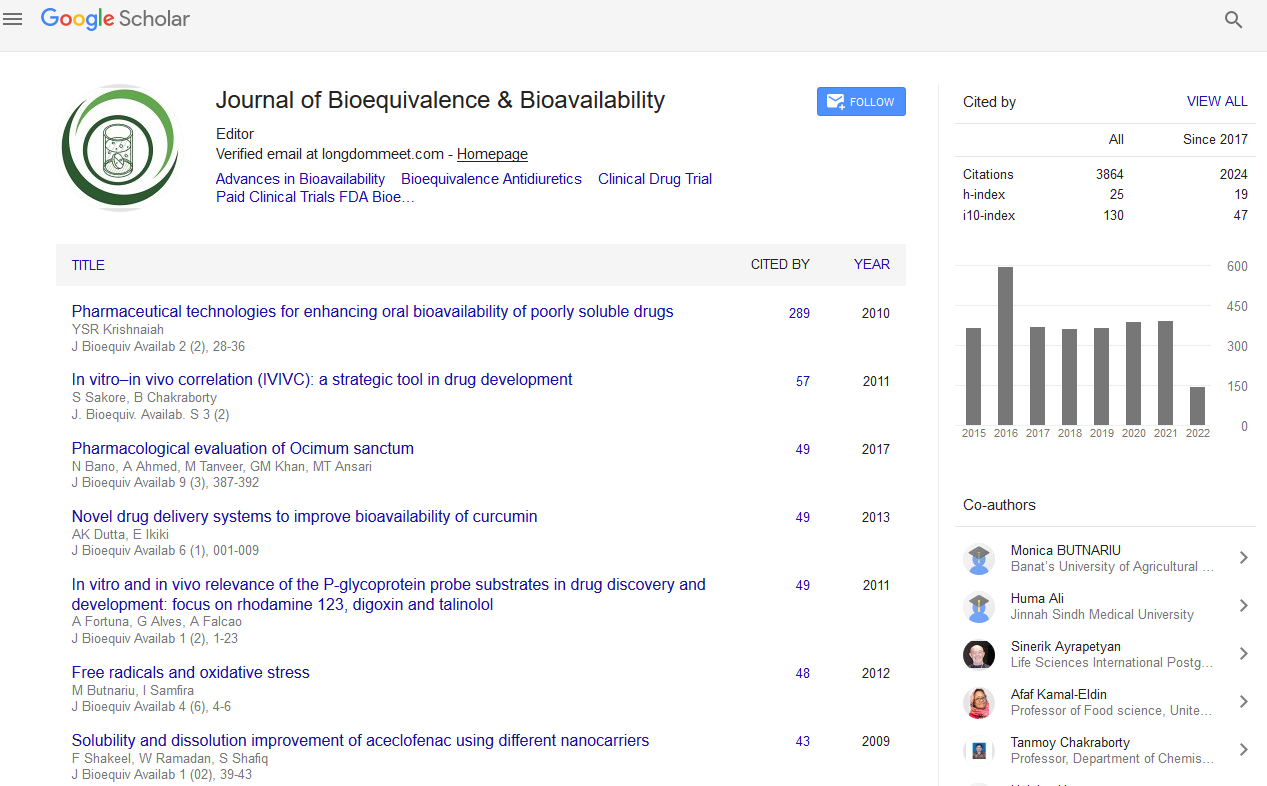PMC/PubMed Indexed Articles
Indexed In
- Academic Journals Database
- Open J Gate
- Genamics JournalSeek
- Academic Keys
- JournalTOCs
- China National Knowledge Infrastructure (CNKI)
- CiteFactor
- Scimago
- Ulrich's Periodicals Directory
- Electronic Journals Library
- RefSeek
- Hamdard University
- EBSCO A-Z
- OCLC- WorldCat
- SWB online catalog
- Virtual Library of Biology (vifabio)
- Publons
- MIAR
- University Grants Commission
- Geneva Foundation for Medical Education and Research
- Euro Pub
- Google Scholar
Useful Links
Share This Page
Journal Flyer

Open Access Journals
- Agri and Aquaculture
- Biochemistry
- Bioinformatics & Systems Biology
- Business & Management
- Chemistry
- Clinical Sciences
- Engineering
- Food & Nutrition
- General Science
- Genetics & Molecular Biology
- Immunology & Microbiology
- Medical Sciences
- Neuroscience & Psychology
- Nursing & Health Care
- Pharmaceutical Sciences
Pharmacogenomics of cancer therapeutics: Molecular structure, drug development, and inter-patient variability
5th World Congress on Bioavailability and Bioequivalence Pharmaceutical R&D Summit
September 29-October 01, 2014 DoubleTree by Hilton Baltimore-BWI Airport, USA
Salah M Blaih
Scientific Tracks Abstracts: J Bioequiv Availab
Abstract:
C ancer biomarkers are expressed as a result of the development and progression of the disease. These biomarkers are most relevant for identifying patients who are likely to benefit from a given treatment (right drug for the right patient). This approach should be utilized in cancer drug development as well as measuring patient?s response to therapy. Some examples of these targeted therapy and their associated design/discovery are discussed: Trastuzumab (Herceptin?) for treatment of breast cancer with HER2 overexpression; the tyrosine kinase inhibitors imatinib (Gleevec?) and nilotinib (Tasigna?), for treatment of BCR-ABL gene expression of Ph+ chronic myeloid leukaemia; vemurefenib (Zelboraf) in cases of melanoma with BRAF mutation; panitumumab (Vectibix?) and cetuximab (Erbitux?) therapy of K-Ras mutation-negative (wild-type), epidermal growth factor receptor (EGFR)-expressing, metastatic colorectal cancer. Pharmacogenetic data related to cancer therapy are also presented. Risks of developing severe, life-threatening toxicities of thiopurine (hematopoietic/ myelosuppression, TPMT*3A/*3C variants); the topoisomerase I inhibitor irinotecan (severe/fatal neutropenia, UGT1A1*28 allele); and the BCR-ABL tyrosine kinase inhibitor Nilotinib (hyperbilirubinemia, UGT1A1*28 allele) are shown
Biography :
Salah M Blaih, PhD, RPh, FRSC is Professor of Chemistry and Biochemistry, Kent State University, USA. He received PhD in Pharmacy from The Ohio State University. He has teaching, research and authoring in pharmacy and chemistry for more than 25 years. He is World-wide invited speaker on quality of medicines/ compendia standards, pharmacogenomics, and medication safety. He is a Fellow of The Royal Society of Chemistry, two-time President of The American Chemical Society-Penn Ohio Section, board-certified pharmacist. He is a member of ACCP, AAPS, Rho Chi Pharmacy Honor Society. His biography has been included in Who?s Who in the World and Who?s Who in America


